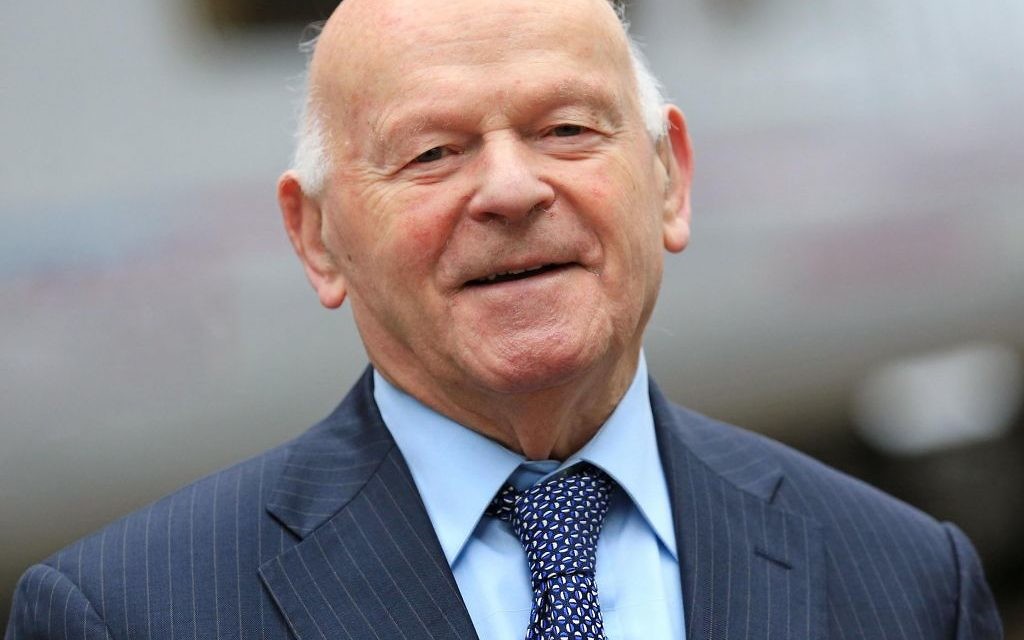OPINION – Sir Ben Helfgott: Let’s mark Erntefest as we recall Kristallnacht
Holocaust survivor & educator Sir Ben Helfgott urges remembrance of one of the Nazis' most terrible crimes
I was gratified to see so many people commemorate the 80th anniversary of Kristallnacht. Yet a few days before, on 3 November, the 75th anniversary of one of the Nazis’ most terrible crimes passed by without a trace. More should know about Operation Erntefest, or Harvest Festival, one of the most bestial events of the Nazis’ reign of terror.
Many horrendous massacres were perpetrated by the Einsatzkommandos in 1941-42 after the victorious German onslaught on the Soviet Union: at Babi Yar, a ravine near the Ukrainian capital Kiev, nearly 34,000 Jews were killed over two days in September 1941 and at Ponary, outside the Lithuanian capital Vilnius, 48,000 were killed over six months.
Yet even these barbarities are overshadowed by what happened in November 1943, when 43,000 Jews in a 15-mile radius were mown down to the accompaniment of blasting military music.
Get The Jewish News Daily Edition by email and never miss our top stories Free Sign Up
Very few people have heard of it, despite 18,000 being killed at Majdanek, 15,000 at Poniatowa and 10,000 at Trawniki. The figure of 43,000 represents more than half of what by then remained of the 1.6 million Jews in general government. The rest of the Jews had been taken from their homes and, in the main, deported to the gas chambers of Treblinka, Majdanek, Sobibor and Belzec. Those left were mainly able-bodied men, concentrated in a few slave labour camps such as Plaszow, Skarzysko, Czestochowa, Radom, Kielce, Ostrowiec, Pionki and Blizin.
Why were these Jews from Majdanek, Poniatowa and Trawniki camps chosen for execution when they were making such a contribution to the war effort? A series of events took place that led to this decision, and to Erntefest.
In April and May 1943 there had been an uprising in the Warsaw Ghetto and in August came the revolt at Treblinka, where some of the gas chambers were destroyed and about 40 inmates escaped, most joining the partisans.
That same month, the Jews of Bialystok rose up as the Nazis sought to liquidate the ghetto, and were only subdued a month later, in mid-September. The crunch came on 12 October, when those left in Sobibor managed to break out. Most were hunted down, but those who managed to escape joined the partisans, who were growing in number and daring.
The Nazis took action, in retaliation, or out of fear of further uprisings. Himmler ordered the liquidation of the three camps, an order carried out under the jurisdiction of the fanatical Jew-hater SS General Odilo Globocnik.
Those Jews killed in the liquidation of Poniatowa and Trawniki were from Warsaw. As usual, the operation deployed deception, with 300 prisoners employed day and night digging pits they were told would be air raid shelters. Extra guards armed with machine guns were brought from Auschwitz, Krakow, Radom and Lublin, to be posted around the perimeter of the camps.
The slaughter began at 8am as the sun rose and ended at 5pm when it fell, with 43,000 killed by bullets – wave after wave of helpless human beings. Only 300 men and 311 women were left, used to sort out the clothing. The women were later sent to Auschwitz where they were killed, the men employed in Sonderkommando 1005.
Among those killed that day were members of the Jewish intelligentsia and cultural and educational activists – poets such as Pola Braun and Josef Kirman, the Jewish actor Isaac Samberg, the Zionist historian Naftali Nusenblat, Jewish literature researcher Dr Edmund Stein and composer Israel Feiwysz. They have been forgotten, with no one to say Kaddish after them.
Just as we commemorate other anniversaries, so must we remember Erntefest.
- Sir Ben Helfgott, Holocaust survivor & educator
Listen to this week’s podcast here:

Thank you for helping to make Jewish News the leading source of news and opinion for the UK Jewish community. Today we're asking for your invaluable help to continue putting our community first in everything we do.
For as little as £5 a month you can help sustain the vital work we do in celebrating and standing up for Jewish life in Britain.
Jewish News holds our community together and keeps us connected. Like a synagogue, it’s where people turn to feel part of something bigger. It also proudly shows the rest of Britain the vibrancy and rich culture of modern Jewish life.
You can make a quick and easy one-off or monthly contribution of £5, £10, £20 or any other sum you’re comfortable with.
100% of your donation will help us continue celebrating our community, in all its dynamic diversity...
Engaging
Being a community platform means so much more than producing a newspaper and website. One of our proudest roles is media partnering with our invaluable charities to amplify the outstanding work they do to help us all.
Celebrating
There’s no shortage of oys in the world but Jewish News takes every opportunity to celebrate the joys too, through projects like Night of Heroes, 40 Under 40 and other compelling countdowns that make the community kvell with pride.
Pioneering
In the first collaboration between media outlets from different faiths, Jewish News worked with British Muslim TV and Church Times to produce a list of young activists leading the way on interfaith understanding.
Campaigning
Royal Mail issued a stamp honouring Holocaust hero Sir Nicholas Winton after a Jewish News campaign attracted more than 100,000 backers. Jewish Newsalso produces special editions of the paper highlighting pressing issues including mental health and Holocaust remembrance.
Easy access
In an age when news is readily accessible, Jewish News provides high-quality content free online and offline, removing any financial barriers to connecting people.
Voice of our community to wider society
The Jewish News team regularly appears on TV, radio and on the pages of the national press to comment on stories about the Jewish community. Easy access to the paper on the streets of London also means Jewish News provides an invaluable window into the community for the country at large.
We hope you agree all this is worth preserving.
-
By Brigit Grant
-
By Laurent Vaughan - Senior Associate (Bishop & Sewell Solicitors)
-
By Laurent Vaughan - Senior Associate (Bishop & Sewell Solicitors)
-
By Laurent Vaughan - Senior Associate (Bishop & Sewell Solicitors)
-
By Laurent Vaughan - Senior Associate (Bishop & Sewell Solicitors)























